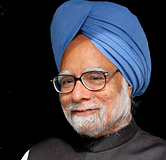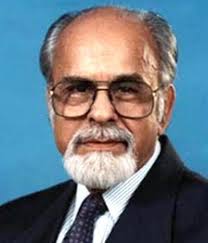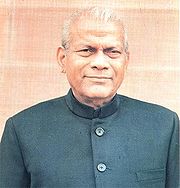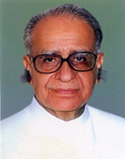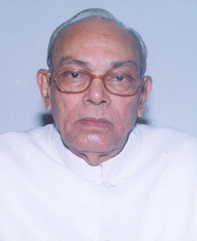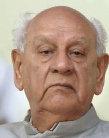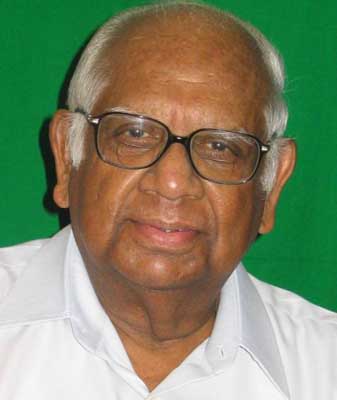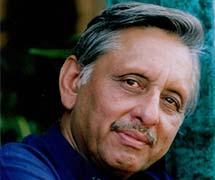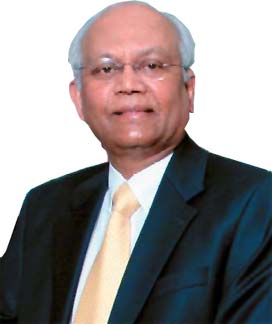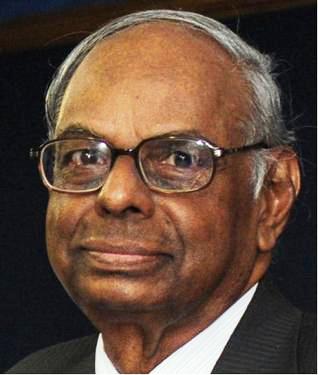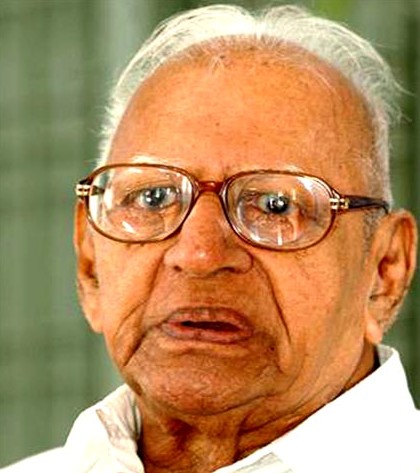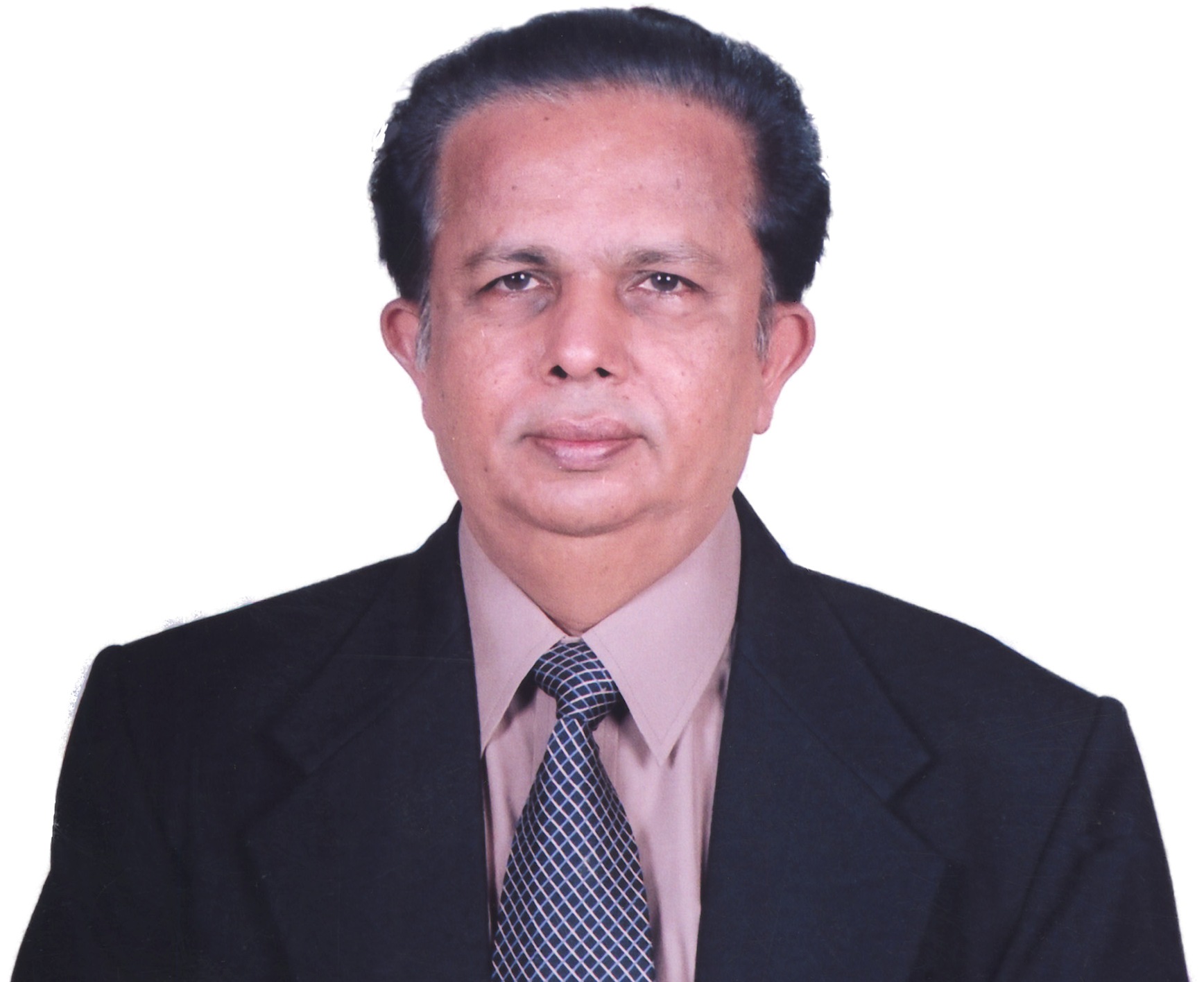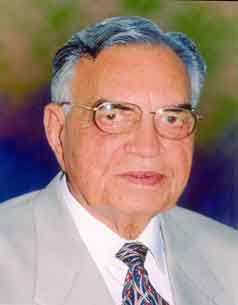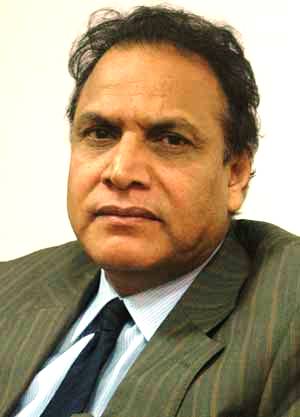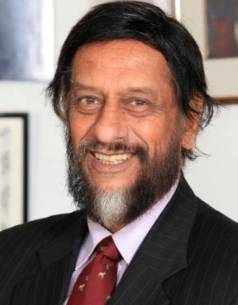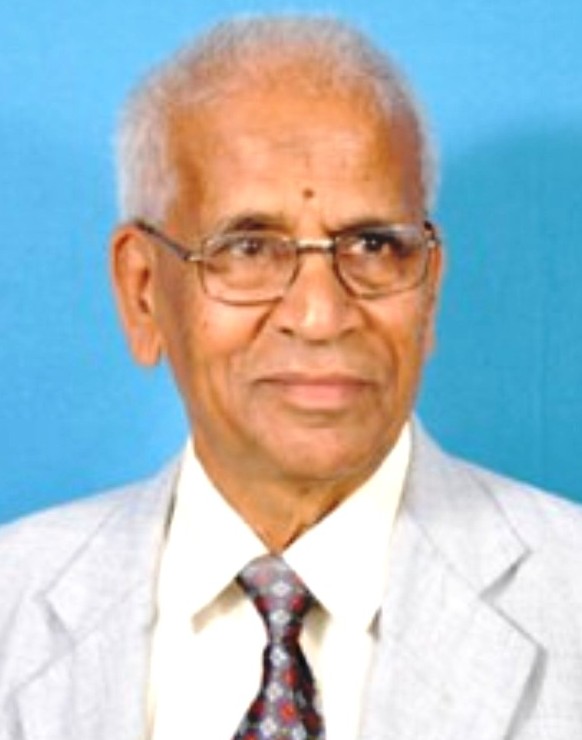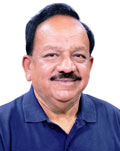Research
Testimonial
Announcements
Inviting Nominations for the Rajiv Gandhi National Awards-2020
Inviting Nominations for the Chittoor District Centenary Awards-2020.
Activities
Contact Us
DR. D. SUNDAR RAM
Founder and Director
Academy of Grassroots Studies and Research of India (AGRASRI)
# Plot No.11, Sri Venkata Sai Nilayam
Thummalagunta, S.V. University P.O.
Tirupati-517502, Andhra Pradesh. India
Mobile: +91-6302947338, +91-9441245085
E.mail: drsundarram@gmail.com | agrasridirector@gmail.com
Website: www.agrasri.org.in
RESEARCH PROJECTS
The Academy of Grassroots Studies and Research of India has conducted the following major research projects in collaboration with the National Commission for India, Rajiv Gandhi National Institute of Youth Development and National Institute of Rural Development and Panchayati Raj, Government of India.
1. Mainstreaming Youth in Local Governance- The Case Study of Paidipalli Gram Panchayat, Chittoor District of Anhra Pradesh conducted by the Academy of Grassroots Studies and Research of India, Tirupati and Sponsored by the Rajiv Gandhi National Institute of Youth Development (RGNIYD), Govt. of India, Sriperambudur, 2013. Final Report submitted to the Rajiv Gandhi National Institute of Youth Development, Sriperambudur, in the Year 2015.
Executive Summary of the Research Report
For Institutions and for nation, the youth participation in decision-making is the key to generating new ideas for development and good governance. Panchayati Raj Institutions provides an opportunity to the youth in decision-making process through 73rd Constitutional Amendment Act in India. Youth plays a vital role in nation building. Indian youth leaders are strong enduring and charismatic. Freedom movement of India is an illustration of this. Youth is always for action, but only thing is we should give the signal that would release its energies. In India, youth constitutes 40 per cent of population which is a major chunk of our human resource, out of which more than 70 per cent are from our rural youth. This magnitude demands the involvement and the participation of youth in governance at different levels. Keeping this in view, the Govt. of India has launched an excellent and innovative programme known as Panchayat Yuva Shakti Abhiyan in the year 2006. This initiative is a revolutionary step towards ensuring participation of the common youth in the development process at the grassroots for the realization of the dream Gram Swaraj of Mahatma Gandhi, so as to develop panchayat as a unit of Local Self-Government and to initiate democratic process at the local level. After two decades of an enactment of the 73rd Constitutional Amendment Act, it is being increasingly recognized that youth participation in decision-making is a dire need in many sectors, especially in local governance. It is important that today's youth be encouraged to take interest in local government decision-making activities and that opportunities be created to foster civic participation by young people.
In recent times, Local Self-Government Institutions started assuming the centre stage in ushering in people-centric, responsive, effective, efficient, people-friendly and decentralised governance. Democratic decentralisation is the cornerstone of Panchayati Raj and has paved the way for people centric development. Panchayats are the platform which provides an opportunity to each section of the society to participate meaningfully in the grassroots democracy. Issues such as devolution of powers and functions and planning below continue to dominate serious discussions on governance, as earlier. This has been possible only with the innovative approaches and practices, more pro-active role in the development process and active support, co-operation and networking among various stakeholders in local governance, particularly youth.
The object of the action research project on ‘Mainstreaming Youth in Local Governance’ was to understand how the youth utilise the opportunity to build the confidence and capacity for empower themselves both in participation and representation on local governance. The Academy of Grassroots Studies and Research of India has carry out this action research project in partnership with the Rajiv Gandhi National Institute of Youth Development, Govt. of India, Sriperambur, in the year 2012 at a tiny gram panchayat Paidipalli, located in Tirupati Rural Mandal, Chittoor District of Andrha Pradesh.
The study was purely based on the primary and secondary data. Primary data were collected from the field (in the year 2012) in the study area namely, Paidipalli Gram Panchayat in Tirupati Rural Mandal, Chittoor District of Andhra Pradesh. The data were collected from the people as well as selected youth population of the study area by employing research methods that include participant observation, personal interviews, semi-structured questionnaire, interactions etc. Focus Group Discussions (FGD’s), Workshops, Round-Table Meetings, Gram Sabha (GS) Meetings, Official Meetings of District Administration, and Village festivals were also conducted to have a better understanding of the youth towards their perceptions on local governance and village development.
Fifty selected youth persons (highly qualified) have been interviewed on the basis of random sampling. Apart from the schedule and observation techniques, the co-ordinator of the study collected information through informal conversations at Rachha Banda Meetings (place of village elders and youth conglomeration). To understand the administration aspects of survey report, the District Gazetteers, the Census Hand Book, Economic and Statistical analysis as well as District Panchayat Office circulars and information and Gram Panchayat office information were also collected with the help of District Panchayat Officer and Divisional and Mandal level Panchayat Officials. To give a friendly touch to the entire fieldwork, the researchers frequently shared breakfast, teas and a glass of water with respondents. This technique proved to be quite useful in gaining insight into their attitude.
The research report is divided into 5 parts. Part-I gives an introduction and Methodology. Part-II presents the profile of the study area. Part-III asserts the analysis of youth status in the study area. Part-IV explains the youth budgeting at the local level and lastly Part-V presents the summary.
Objectives of the Study
The following are the main objectives of the research study:
- To analyse the extent of participation of youth in local government institutions and other social institutions in the selected area;
- To examine the factors that inhibit participation of youth in local governance;
- To work for binging about ‘Youth Budgeting’ in the local government institutions;
- To indentify and carry out appropriate interventions strategies and approaches to enhance youth participation in local governance;
- To bring in perceptible changes in youth towards local governance in terms of involvement and participation;
- To equip the youth with personal and social skills to function as ‘Change Agents’ in the society;
- To bring in positive attitude among the different sections of the society towards youth;
- To put forward suggestions to ensure sustainability of the interventions.
Profile of the Paidipalli Gram Panchayat- Study Area
Paidi Palli, consisting of 7 habitations, is the Gram Panchayat in Chittoor district in Andhra Pradesh. It falls under Tirupati (Rural) Mandal. Paidi Palli has a population of 1167 of which Males are 608 and Females are 559. Total Households of the Paidi Palli Gram Panchayat are 301.
Paidipalle is located 10 Km away from Tirupati City. The Gram Panchayat, consisting of 8 Wards, is well connected with the Ring Road of Tirupati-Bangalore Highway. Total Number of Voters in GP is 786. The presence of Youth Population in Paidipalle Gram Panchayat is 486 (between 13-35 Years). Youth Organisations affiliated to both national and regional political parties are working in Gram Panchayat since long time. Community Base Organisations like Village Organisations, Mothers Committees, Water User Associations, School Education Committees, Rural Youth Sangams/CMEY, Self-Help Groups (SHG’s), NREGS Labour Groups, Village Health Committees etc. are functioning in the Gram Panchayat, for human development.
Field Observations
In the following pages, we present the meaningful findings arrived at after analysing the field based observations, brief conclusion and useful suggestions/recommendations for the benefit of the policy makers, bureaucrats and research organisations to carry forward the message for mainstreaming youth in local governance as strong and efficient in the best interest of the rural community at the grassroots.
- All highly qualified youth professionals at the Gram Panchayat should visit the work-sites of MGNREGP as ‘internees’, learn the good practices and extend technical support under the guidance of the site engineer.
- The involvement of NGOs and CBOs in the scheme of youth empowerment is far from satisfactory though there is ample scope for these agencies to play a critical role in awareness building and skill up gradation of youth population.
- PRI functionaries at Gram Panchayat level need to be trained periodically and ‘behavioural aspects’ should be included in the training curriculum.
- Need for massive awareness campaign on provisions of Centrally Sponsored Schemes and rights and entitlements of Gram Panchayats in all.
- Need for massive awareness campaign on provisions of Centrally Sponsored Schemes and rights and entitlements of Gram Panchayats in all.
- Gram Sabha for selection of beneficiary should be conducted before commencement of the financial year. The Panchayat Secretary should be made responsible for conducting Gram Sabhas every year, as the provisions of 73rd Constitutional Amendment Act.
- Conduct regular capacity building training programmes and workshops for the elected representatives of gram panchayats at their local headquarters on the major development issues and administrative procedures to sensitise policy makers at the grassroots level.
- Allocation of required resources by the Governments towards the youth related activities and programmes in gram panchayats for attracting the youth towards the local governance administration.
- Take appropriate measures to motivate youth in agriculture and attract them to agribusiness opportunities.
Comments and Reflections
During the period of action research project at Paidipalli Gram Panchayat, the research team has made the following comments and reflections out of the views and vision of young people in particular and citizens in general. The following are some of the comments and reflections:
- In the study area, Gram Panchayat records and registers were not maintained properly by Field Assistants due to lack of infrastructure facilities as well as sufficient knowledge skills.
- Most of the elected representatives have requested for roads, drainages and other village infrastructure development works viz., water tank, school buildings, anganwadi centres and health centres etc., to be taken up under NREGS with some flexibility in 60:40 ratio of wage and material component.
- Youth Participation in Grama Sabha Meetings in the Gram Panchayat is not encouraging one, due to less importance given to the youth.
- No adequate infrastructure facilities, like Reading Library, Youth Meeting Hall, Advocacy Cell etc, are being available to the youth population at the Gram Panchayat, for their over development.
- Less focus on the affairs of the Gram Panchayat activities by the Youth Population, since the Village elders are playing an active role in the policy-decision making process of the Village Administration.
- Highly qualified youth are showing keen interest on their future course of action, instead of active participation in the Gram Panchayat decision-making process.
- Self-Help Groups are very much active in the development activities of the Gram Panchayat and an asset to the Village Development in all respects.
- Most of the educated youth were migrated to urban areas for employment and sustainable livelihood.
- Need to prevailing friendly atmosphere among the families of Paidipalli Gram Panchayat in day-to-day activities, irrespective of caste, creed and religion.
- Encouraging the village customs, traditions, cultural activities, besides organising the annual village festivals in a consensus mode by the citizens of Paidipalli Gram Panchayat.
- Lack of civic amenities at the study area.
- Youth addicts towards the foreign culture and other psychological stigmas.
- Lack of response towards rights and duties by the educated youth.
- Nominal presence of youth organisations and youth clubs at the study area.
- Low level of participation of youth in the affairs of political institutions.
Suggestions
The following suggestions arrived out of the research study and the AGRASRI has recommended that these suggestions would be considered by the respective governments at the Centre and State, for effective implementation of youth related programmes and activities at the grassroots level:
- Celebrate the Youth Empowerment Day on 12th January every year at the Gram Panchayat by involving the youth population and youth organisations. This will be a special occasion for disseminating information and providing clarifications on youth empowerment in nation building.
- Awarding incentives and honours on the successful youth leaders in recognition of their talents and skills for the progress and development of gram panchayat, as role models/ change makers in local governance.
- Separate fund for Capacity Building activity is needed for the youth population in Gram Panchayat for up gradation of knowledge and skills in relevant areas towards youth empowerment in local governance.
- Set-up the Youth Resource Centres at the District level/Taluk level for exclusive affairs of youth development and local governance, with support of the Rajiv Gandhi National Institute of Youth Development, Govt. of India, in collaboration with local NGO’s/academic institutes.
- Publication of Youth Perspective Plan at the District, Taluk and Gram Panchayat Level for a period of 5 years with integration of Five Year plans of Planning Commission of India and State Planning Commissions/Boards.
- Incorporation of Youth Empowerment as a Special Subject in the School and College Sylabi for creating awareness and active involvement of youth population towards inclusive growth through local government institutions.
- Extending institutional support to the Non-Governmental Organisations by the Union and State Governments for imparting capacity building and training programmes at the gram panchayat level for educated youth once in 3 months.
- Organise field visits/exposure visits to the role model gram panchayats for the youth population once in a year for understanding the inclusive growth through inclusive governance.
- Provide a consultancy services with planning experts to the young elected representatives of Panchayati Raj Institutions (PRIs) on micro-planning for formulating a future vision of grassroots planning.
- Documentation of successful cases/best practices of grassroots youth leaders at the district, taluk and gram panchayat levels.
- All highly qualified youth professionals at the Gram Panchayat should visit the work-sites of MGNREGP as ‘internees’, learn the good practices and extend technical support under the guidance of the site engineer.
Press Reports and Photos on Research Project Field Visits
Eenadu, 2 March, 2012

Andhra Bhoomi, 2 April, 2012

Eenadu, 9 June, 2012

The Hindu, 13 March, 2013

Eenadu, 15 March, 2013


Dr. P.V. Sesha Reddy, the then District Panchayat Officer, Chittoor, Inaugurating the ‘Mainstreaming the Youth in Local Governance’ National Project at Paidipalli Gram Panchayat, on 1 April, 2012.

Dr. D. Sundar Ram, Director of AGRASRI, presenting the Mid-term Project Report on ‘Mainstreaming the Youth in Local Governance’ at the National Colloquium, held on 5 June, 2012 at RGNIYD

Dr. D. Sundar Ram, Director of AGRASRI along with Youth Team of Paidipalli GP at the National Colloquium on ‘Mainstreaming the Youth in Local Governance’, held on 5 March, 2013 at RGNIYD.

Dr. D. Sundar Ram, Director of AGRASRI along with Youth Team of Paidipalli GP at the National Colloquium on ‘Mainstreaming the Youth in Local Governance’, held on 5 March, 2013 at RGNIYD.
2. Increasing Domestic Violence against Women through Alcoholism in Rural Andhra Pradesh: The Case of Chittoor District conducted by the Academy of Grassroots Studies and Research of India, Tirupati and Sponsored by the National Commission for Women, Government of India, New Delhi, 2017. Final Report submitted to the National Commission for Women, New Delhi, in the Year 2017.
Executive Summary of the Research Report
In recent decades interest in domestic violence against women through alcoholism on the part of professional organisations, government agencies and the general public has increased constantly in India. This growing interest and related, at times sensational, publicity provided by the media of mass communication have resulted in the now widespread belief that the incidence of violence against women and its severity as a gender, health and social problem, is on the increase, that it has, in fact, become a major cause of insecurity and ill-treatment among women in contemporary India.
Domestic violence against women has emerged as an important social problem in rural India. Violence against women, ranging from the visible to the invisible - from battery to sexual atrocities like molestation and rape, dowry tortures and murders, trafficking and female infanticide - continues to be perpetrated by families, communities and the state. Violence against women and girls within the family, both parental and marital continues, as doe’s sexual harassment at the workplace. Community-based honour killings are still common, and casteist and communal power struggles take recourse to chilling forms of sexual violence against women. Violence against women has been recognised as one of the eleven critical areas of concern by the Indian Government in its 1995 Country Report for the Fourth World Conference on Women at Beijing.
Today, state and societal recognition of the problem is increasing, and legal aid, crisis intervention and support mechanisms are more easily available to women, yet violence against women also continues to rise. Despite substantial achievements in legal reform, we recognise that laws passed to protect or empower women are still confronted by societal and institutional patriarchy in implementation. The use of alcohol in India, as elsewhere in the world, has increased very rapidly as according to a report, during 1992-2012, the per capita consumption of alcohol in India has increased by whopping 55 %, the third highest increase in the world, after Russian Federation and Estonia.
According to World Health Organisation (WHO), about 30% of Indians consume alcohol, out of which 4-13% are daily consumers and up to 50% of these, fall under the category of hazardous drinking. Another worrying trend from India is that the average age of initiation of alcohol use has reduced from 28 years during the 1980s to 17 years in 2007. In India alcohol abuse also amounts to huge annual losses due to alcohol-related problems in work places. Nearly 25% of the road accidents are under the influence of alcohol and it is also a significant risk factor for increased domestic violence against women in India.
Alcohol as the evidences reveal is as old as the recorded history of the man itself. Consumption of Somarasa, Devbooti and Madira is frequently referred to in the Vedic and Post Vedic era and on seeing the people’s marked inclination to alcohol it can be said that its consumption will continue till the sun-set of the civilisation.
Alcohol, regardless the form of consumption, is physiologically, a depressant drug which exerts its major effect upon the central nervous system. The most dangerous aspect of alcohol’s influence is the fact that as the individual becomes less and less capable of normal functioning; his ability to judge his level of competence has already been impaired. This explains why many individuals under the influence of alcohol express the belief that their performance is either not impaired or is improved. Alcohol abuse and addiction can also lead to destructive behavior such as driving under the influence of alcohol and domestic violence against women.
Alcoholism is seen as the world's highly prevalent public health problem and therefore alcoholism is a matter of serious concern, not confined to any group, culture or country. Thus alcoholism/alcohol dependence is a multifaceted problem that affects not only the individual but the entire community or nation. Therefore it is imperative to understand and tackle the consequences at various levels for helping the alcoholic and for minimising the damages.
The foremost and significant aspect of alcoholism is the recognition of the need of safeguarding and preventing the domestic violence against women in rural India. Secondly, history of alcoholism in rural society would show that the women have faced a lot of personal problems including domestic violence. As a result, there has been a growing concern for the speedy abolition of alcoholism in rural society. In this context research studies, which make an in-depth analysis of different aspects of domestic violence against women are of critical value. This conclusions and findings of such studies will provide necessary input to the planners and administrators for the speedy abolition of alcoholism in rural Andhra Pradesh.
According to a rough estimate, liquor, illicit arrack and gudumba have already ruined the lives of nearly seven million of families in rural Andhra Pradesh. Field visits by AGRASRI Research Team Members have revealed that there are many villages in Chittoor District of Andhra Pradesh which are peopled mostly by widows as men folk have succumbed to addiction to liquor. Tens of thousands of women are leading miserable lives as the men folk spend their hard earnings to buy liquor and subject them to domestic violence.
Women in both rural and urban areas have taken to the streets demanding closure of unauthorised outlets, known as belt shops, in their localities since easy access to liquor has aggravated the problem of liquor addiction. The other cause, of course, is free distribution of liquor during elections by most political parties as part of vote bank politics.
Against this backdrop the present research study made a humble attempt to find out the processes and mechanisms working in the implementation of anti-domestic violence measures in Andhra Pradesh, with special reference to Chittoor District. The study has explored to seek answer of basic questions like: What have been done at macro level to implement the domestic violence act? What has been the response of vulnerable segments of the society for this persistent issue? How far the women are capable of activating the domestic violence act in their families? What is the level of participation and performance of women leadership at the grassroots level? What are the major bottlenecks and hindrance in the proper functioning of the domestic violence act at the country side?
The object of the research project on ‘Increasing Domestic Violence against Women in Rural Andhra Pradesh: The Case of Chittoor District’ was to understand how the women utilise the opportunity to build the confidence and capacity for empower themselves both in participation and representation in family as well as governance. The Academy of Grassroots Studies and Research of India (AGRASRI), has carry out this research study in partnership with the National Commission for Women (NCW), Govt. of India, New Delhi, in the year 2015-2016 at 15 selected Gram Panchayats located in 3 Revenue Divisions of Tirupati, Chittoor and Madanapalle in Chittoor District of Andhra Pradesh.
The research study was purely based on the primary and secondary data. Primary data were collected from the field (in the year 2015) in the study area of 15 selected Gram Panchayats in Chittoor District of Andhra Pradesh. The data was collected from the elected representatives of Panchayati Raj Institutions as well as selected Self-Help Group Members of the study area by employing research methods that include participatory observation, personal interviews, semi-structured questionnaire, interactions etc,. In addition, Focus Group Discussions (FGD’s), Workshops, Gram Sabha (GS) Meetings, Official Meetings of District Administration, and Village festivals were also conducted to have a better understanding of the women towards their perceptions on domestic violence and adverse effects of alcoholism.
Press Reports and Photos on Research Project Field Visits
Sakshi, 28 October, 2016

Eenadu, 31 October, 2016

Sakshi, 1 November, 2016

Vartha, 28 October, 2016


AGRASRI Director Dr. D. Sundar Ram and Dr. V. Hari Naidu, Project Investigator, with Group of
Dalit Women at Keenatampalli Gram Panchayat, Yadamari Mandal, Chittoor District, on 14.9. 2015.

AGRASRI Director Dr. D. Sundar Ram, interacting with Group of Dalit Women at
Keenatampalli Gram Panchayat, Yadamari Mandal, Chittoor District, 2016, on 14.9.2015

AGRASRI Director Dr. D. Sundar Ram, interacting with Group of Dalit Women at
Keenatampalli Gram Panchayat, Yadamari Mandal, Chittoor District, 2016, on 14.9.2015

AGRASRI Director Dr. D. Sundar Ram and his Research Team Members collecting the
information through Questionnaire from group of Women at K. Jimmapuram Gram Panchayat,
Yadamari Mandal, Chittoor District, on 15.9.2015.

AGRASRI Director Dr. D. Sundar Ram and his Research Team Members collecting the
information through Questionnaire from group of Women at Chinthamakulapalli Gram Panchayat,
Rompicherla Mandal, Chittoor District, on 26.10.2016.

AGRASRI Director Dr. D. Sundar Ram explaining the objectives of the
NCW Research Project at a group of Women, along with Panchayat Secretary
Shri Dayasagar at Settipalli Gram Panchayat, Tirupati Rural Mandal, Chittoor District, on 31.10.2016
3. Time and Work Study for the Panchayat Functionaries in India - Andhra Pradesh State conducted by the Academy of Grassroots Studies and Research of India, Tirupati and Sponsored by the Ministry of Panhayati Raj and National Institute of Rural Development and Panchayati Raj, Government of India, New Delhi, 2018. Final Report submitted to the National Commission for Women, New Delhi, in the Year 2019
Executive Summary of the Research Report
The 73rd Constitutional Amendment is a milestone in the annals of panchayati raj system of India after 1992. The 25 years of experiments of Panchayati Raj have demonstrated the power of decentralisation and empowerment in bringing social development and transformation in India. It aims to transform the characters of Indian democracy from representative to representative and participatory democracy. However, yet one would find surge of barriers and obstacles in the process of decentralisation. No doubt, the 73rd Constitutional Amendment has opened opportunities for good governance and self governance. But the process and nature of the decentralisation differ from state to state. India is a sub continent and reactions to such fundamental changes are varied and different. Each state of India has many distinct features of decentralisation and cross learning of lessons will be very useful. In order to transform present realities, it is imperative to strengthen decentralisation from below, so that voices of the poor could carry weight in village assemblies and ward council meetings.
Article 243G of the Constitution mandates States to endow Panchayats with such power and authority so as to enable them to function as institutions of self-government and plan and implement schemes for social justice and economic development, including on 29 matters listed under the 11th Schedule. As per the Constitution, the empowerment of Panchayats has clearly been left to the States. States vary a great deal in the extent to which they have devolved funds, functions and functionaries (3Fs) to Panchayats and built their capacities in terms of appropriate manpower, infrastructure and training to enable them to exercise the powers devolved.
The Gram Panchayats are empowered to function as grassroots level policy institutions, for grassroots planning and executing village level public works and their maintenance, ensuring the welfare and sustainable development of the citizens of the village including health, education, infrastructure, communal harmony etc. Since Independence, we believed that for the overall development, village should first flourish and the people at the village should prosper. As the basic unit of local-self government, the effective functioning of Gram Panchayat is vital for good governance. India lives in villages. The village administration is the basic pillar of the India administration and inclusive growth of the nation is depending on the level of the progress and development of our villages.
In the rapid changes that will take place in India, and indeed the World in the 21st century, governance systems will have to be at the cutting edge of being the protectors of the poor, the women, the oppressed, the vulnerable and the under privileged. With the vision of ushering in a democratic and participatory governance system in Independent India the initiative to give Constitutional status to Panchayati Raj was attempted by the Congress (I) government led by Shri Rajiv Gandhi in 1989. No wonder, the 64th Constitution Amendment Bill was lost in the Rajya Sabha by 3 votes only in 1989. Subsequently, the National Front government led by Shri V.P. Singh introduced the 74th Constitution Amendment Bill which lapsed due to the dissolution of Lok Sabha in 1990. Being committed to decentralisation of power and authority, and revitalisation of Panchayati Raj Institutions (PRI’s), the P.V. Narasimha Rao government introduced the 64th Constitution Amendment Bill in a somewhat diluted form, again in 1992 and it was passed by the Parliament in December, 1992. It became an Act on 24 April, 1993, known as the 73rd Constitution Amendment Act, 1992. This act provided constitutional sanctity to Panchayats as the third-tier sphere of self-governance in India. It enlarged the space for people’s representation and their agency in matters of governance and moved decisions making closer to them. In short, the Constitutional provisions were indeed responsible for fuelling the high expectations of local self-governance in the Gandhian dream of ‘Gram Swaraj’.
The most stringent test of any exercise in democratic decentralisation is, of course, the actual powers and functions that are devolved to democratic institutions at the grassroots level. No doubt, 25 years after the 73rd Constitution Amendment Act, there a number of challenges, constraints and obstacles before the Panchayati Raj administration in contemporary India. In the view point of the working of the Panchayati Raj Institutions at all Ievels as Institutions of Local Self-Government in letter and spirit of the 73rd Constitution Amendment Act, a need of the hour is to look at the good governance in terms of its delivery to achieve overall development and social justice. For this, the whold issue of Panchayati Raj system is to be reviewed, policies are to be reformulated and grassroots level realities are to be recognised. This would perhaps require renewed interest in the changing structure of the time and workload of the Panchayati Raj Functionaries in India from ‘inadequate manpower and human resources’ situation to ‘full-fledged and sustainable man power and human resources’ situation at the gram panchayat level. What emerges clearly is that the more effectively the Panchayats are endowed with 3 F’s - Functions, Functionaries and Finances - the more effective is the adequate man power and human resources in every gram panchayat in delivering good governance and sustainable development.
In this direction, the Union Ministry of Panchayati Raj has been taken a number of initiatives and measures since 2004 to enable panchayats to function as empowered institutions fully involving the common citizens in decision-making process and in turn, in equitably delivering the expected public services with inclusive growth. In an appreciable manner, for the first time, a nation-wide survey of the Time and Work Study of the Panchayati Raj Functionaries in India, at the instance of the Union Ministry of Panchayati Raj, in association with the National Institute of Rural Development and Panchayati Raj (NIRDPR), Hyderabad. It is a privilege and honour to the Academy of Grassroots Studies and Research of India (AGRASRI), Tirupati, in the completion of the considerable task in 2 southern states of Andhra Pradesh and Tamil Nadu, as one of the partnering institutions with the National Institute of Rural Development and Panchayati Raj.
In Andhra Pradesh state, Nambur, Dindi, Papayapalem, Ankupalem, Pedalabudu, Korukonda, Mugada and Kalavarai Gram Panchayats, located in Guntur, Visakhapatnam and Vizianagaram Districts were selected for the national research study. Significantly, the Pedalabudu, the Scheduled Tribe dominated Gram Panchayat, located in Araku Valley Mandal of Visakhapatnam District was adopted by Shri N. Chandra Babu Naidu, the Hon’ble Chief Minister of Andhra Pradesh. Similarly, Mugada Gram Panchayat under the category of PESA, located in Badangi Mandal of Vizianagaram District was adopted by Shri Ashoka Gajapathi Raju, the then Hon’ble Union Minister for Civil Aviation, under the Sansad Adarsh Gram Yojana Scheme. It is very interesting policy point to note that though these 2 Gram Panchayats have been developed in all respects as role model Gram Panchayats with generous support and vision by the 2 senior policy makers, the man power and human resources facilities of the Panchayati Raj functionaries are not adequate as per the requirements in delivering public services.
The present study is an attempt to make an assessment of the existing workload and available human resources of Panchayati Raj functionaries and finding the ways and alternative solutions for strengthening their man power requirements in future. The study was undertaken in 8 selected Gram Panchayats located in Guntur, Visakhapatnam and Vizianagaram districts of Andhra Pradesh state on a random basis. To capture and analyse the time and workload of Panchayati Raj functionaries, the selection of the Gram Panchayats for the study was, more or less, similar across all the 29 states in India.
The main objective of the study on ‘Time and Work Study for the Panchayati Raj Functionaries in India’ is to assess the staff requirement at Gram Panchayat (GP) level for performing core functions of GP effectively and efficiently.
The sub-objectives of the study are as follows:
- To map functions and responsibilities of GPs and related functionaries as per the State Act which may fall under the following categories (Schedule-1, 2 &3);
- Functions devolved by State PR Acts
- Functions for which government orders to operationalise the management of devolved functions (de-jure functions)
- Functions which are actually performed by the GPs (de-facto functions).
- To map the processes for each of the functions identified above integrating the responsibilities, including those performed by the Line Departments functionaries at the GP level (Convergence) (Schedule-4);
- To study the existing GP staffing pattern, qualifications, experience, competencies and skill sets (Schedule-1 &5);
- To examine the work as it is done through “Time and Work” study and quantify the work load and ideal requirement of manpower (Schedule 4 & 6);
- Assess and map for process re-engineering (simplification of process and procedure re-engineering) capacity building, and use of ICT by which the work outputs / outcomes can be improved (Schedule-4& FGDs);
- To Identify the work that can be done through proper outsourcing(Schedule-4& FGDs);
- Assess and prescribe additional human resources required for effectively handling the work load estimated by “Time and Work” study, after accounting for improvement in work due to process re-engineering and outsourcing(Schedule-5& FGDs);
- Job profile of additional human resources, ideal form of recruitment, qualifications and career path (Schedule-5& FGDs);
- Assess quality of services provided by the GPs (FGDs with Citizens);
- Estimated additional cost for additional manpower and possibilities of meeting such costs innovatively.
The study is based on the primary and secondary data. Primary data were collected from the field (in the year 2018) in the study area of 8 selected Gram Panchayats in Guntur, Visakhapatnam and Vizianagaram Districts of Andhra Pradesh. The primary data for this study were collected from the elected representatives of Gram Panchayats, Panchayati Raj functionaries, SHG Group Members, Senior Citizens and NGO functionaries of the study area by employing research methods that include participatory observation, interviews, semi-structured questionnaire, interactions etc,. In addition, Focus Group Discussions (FGD’s), Gram Sabha (GS) Meetings, Official Meetings of Village and District Administration, and Village festivals were also conducted to have a better understanding on the theme of the study towards their perceptions and opinions.
The research report of the study was divided into 8 Chapters. The Chapter-1 deals with the introduction. The Chapter-2 probes the profile of sample Gram Panchayats. The Chapter-3 provides the analysis of the governance functions of the sample Gram Panchayats. The Chapter-4 explores the process mapping of the sample Gram Panchayats. The Chapter-5 highlights the panchayati raj functionaries’ duties and responsibilities with the existing machinery and equipment. The Chapter-6 provides the time and work load of the panchayati raj functionaries. The Chapter-7 presents the insights and perceptions of the various stakeholders of the sample Gram Panchayats through Focus Group Discussions. The Chapter-8 provides suggestions and recommendations for policy frame work and appropriate measures by the respective governments at the Union, State and Local levels.
Press Reports and Photos on Research Project Field Visits
Sakshi, 20 February, 2018

Sakshi, 22 February, 2018

Eenadu, 2 March, 2018

Eenadu, 4 March, 2018

Andhra Bhoomi, 7 March, 2018

Andhra Prabha, 10 March, 2018

Andhra Bhoomi, 15 March, 2018


AGRASRI Director Dr. D. Sundar Ram and his Research Team with Sarpanch,
Panchayat Secretary and Ward Members of Nambur GP, Guntur District on 19 February, 2018.

AGRASRI Director Dr. D. Sundar Ram and his Research Team interacting with Sarpanch,
Panchayat Secretary and Ward Members of Nambur GP, Guntur District on 20 February, 2018.

AGRASRI Director Dr. D. Sundar Ram interacting with Sarpanch, Ward Members and
Panchayat Secretary of Dindi GP, Guntur District on 21 February, 2018.

AGRASRI Director Dr. D. Sundar Ram and his Research Team with EO (PR&D) Nizampatnam Mandal, Sarpanch, Panchayat Secretary and Ward Members of Dindi GP, Guntur District on 21February, 2018.

AGRASRI Director Dr. D. Sundar Ram and his Research Team with Sarpanch, Upa-Sarpanch, Ward Members and Panchayat Secretary of Papayapalem GP, Visakhapatnam District on 1 March, 2018.

AGRASRI Director Dr. D. Sundar Ram and his Research Team with Sarpanch, Upa-Sarpanch, Ward Members and Panchayat Secretary of Papayapalem GP, Visakhapatnam District on 1 March, 2018.

AGRASRI Director Dr. D. Sundar Ram observing the Bio-metric system of Pension Distribution
by the Panchayat Secretary of Ankupalem GP, Visakhapatnam District on 3 March, 2018.

AGRASRI Director Dr. D. Sundar Ram interacting with the Sarpanch, Ward Members and
Panchayat Secretary of Ankupalem GP, Visakhapatnam District on 3 March, 2018.

AGRASRI Director Dr. D. Sundar Ram and his Research Team with Sarpanch, Upa-Sarpanch, Ward Members and Panchayat Secretary of Ankupalem GP, Visakhapatnam District on 3 March, 2018.

AGRASRI Director Dr. D. Sundar Ram observing the Bio-metric system of Pension Distribution
to the Pensioners by the Panchayat Secretary of Korukonda GP, Vizianagaram Dist. on 6 March, 2018.

AGRASRI Director Dr. D. Sundar Ram and his Research Team interacting with MPTC Member, Sarpanch, Ward Members and Panchayat Secretary of Korukonda GP, Vizianagaram Dist on 6 March, 2018

AGRASRI Director Dr. D. Sundar Ram visiting the Vermi Compost Unit with
Panchayat Secretary of Korukonda GP, Vizianagaram Dist on 6 March, 2018

AGRASRI Director Dr. D. Sundar Ram interacting with Sarpanch, Ward Members and
Panchayat Secretary of Kalavarai GP, Vizianagaram Dist on 8 March, 2018

AGRASRI Director Dr. D. Sundar Ram interacting with ASHA Workers and
ANM Staff at Kalavarai GP, Vizianagaram Dist on 8 March, 2018

AGRASRI Director Dr. D. Sundar Ram and his Research Team with MPDO, Tahsildar,
EO (PR&RD) and Panchayat Secretary at Mugada GP, Vizianagaram Dist on 9 March, 2018

AGRASRI Director Dr. D. Sundar Ram and his Research Team interacting with MPDO, Tahsildar,
EO (PR&RD) and Panchayat Secretary at Mugada GP, Vizianagaram Dist on 9 March, 2018

AGRASRI Director Dr. D. Sundar Ram and his Research Team interacting with MPDO, Tahsildar,
EO (PR&RD) and Panchayat Secretary at Mugada GP, Vizianagaram Dist on 9 March, 2018

AGRASRI Director Dr. D. Sundar Ram and his Research Team interacting with the Sarpanch,
Ward Members and Panchayat Secretary at Mugada GP, Vizianagaram Dist on 9 March, 2018

AGRASRI Director Dr. D. Sundar Ram verifying the GP Records with the Sarpanch,
and Panchayat Secretary at Araku GP, Visakhapatnam District on 12 March, 2018

AGRASRI Director Dr. D. Sundar Ram addressing at the Meeting with the MPDO, EO (PR& RD),
MPP Vice-President, Sarpanch, Former Sarpanch, Ward Members and Panchayat Secretary
at Araku GP, Visakhapatnam District on 13 March, 2018

AGRASRI Director Dr. D. Sundar Ram and his Research Team interacting with the Tribal People of Araku GP along with Sarpanch, Former Sarpanch and Panchayat Secretary at one of the Hamlets of Araku GP, Visakhapatnam District on 14 March, 2018

AGRASRI Director Dr. D. Sundar Ram and his Research Team visiting the Anganwadi Centre at one of the Hamlets of Araku GP along with Sarpanch, Former Sarpanch and Panchayat Secretary of Araku GP, Visakhapatnam District on 14 March, 2018

AGRASRI Director Dr. D. Sundar Ram and his Research Team visiting the Vermi Compost
Centre of Araku GP along with Sarpanch, Former Sarpanch and Panchayat Secretary of
Araku GP, Visakhapatnam District on 14 March, 2018
4. Progress Report on Saansad Adarsh Gram Yojana Programme- Sodam Gram Panchayat, Chittoor District of Andhra Pradesh State conducted by the Academy of Grassroots Studies and Research of India, Tirupati and All India Radio Station, Tirupati, 2016. Progress Report Summary has broadcasted by All India Radio Station in 11 Slots on different dates during February and March, in the year 2016.
SAANSAD ADARSH GRAM YOJANA PROGRAMME

Saansad Adarsh Gram YojanaSaansad Adarsh Gram Yojana (SAGY) was launched by the Hon'ble Prime Minister Shri Narendra Modi on 11th October 2014 with the aim to translate the comprehensive vision of Mahatma Gandhi about an ideal Indian village into reality, keeping in view the present context. Under SAGY, each Member of Parliament adopts a Gram Panchayat and guides its holistic progress giving importance for social development at par with infrastructure. The 'Adarsh Grams' are to become schools of local development and governance, inspiring other Gram Panchayats.
By involving villagers and leveraging scientific tools, a village development plan is prepared under the leadership of Member of Parliament. The distinct feature of this Yojana is that it is:
- Demand Driven
- Inspired by Society
- Based on People's Participation
Objective of SAGY
The main objective of SAGY are:
To trigger processes which lead to a holistic development of the identified Gram Panchayats
To substantially improve the standard of living and quality of life of all section of the population through -
- Improved basic amenities
- Higher productivity
- Enhanced human development
- Better livelihood opportunity
- Reduced disparities
- Access to right and entitlements
- Wider social mobilization
- Enriched social capital
To generate models of local level development and effective local government which can motivate and inspire neighboring Gram Panchayats to learn and adapt
To nurture the identified Adarsh Grams as schools of local development to train other gram panchayat
How to select a village for Saansad Adarsh Gram Yojana?
- A Gram panchayat would be the basic unit. It will have a population of 3000-5000 in plain areas and 1000-3000 in the hilly, tribal and difficult area.
- The MP would be free to identify a suitable Gram Panchayat to be developed as Adarsh Gram, other than his/her own village or that of his/her spouse.
- The MP will identify one Gram Panchayat to be taken up immediately, and two other to be taken up little later.
- Lok Sabha MP has to choose a Gram Panchayat from within his/her constituency and Rajya Sabha MP a Gram Panchayat from the rural area of a district of his/her choice in the State from which he/she is elected.
Evaluation of Saansad Adarsh Gram Yojana Programme at Sadam Gram Panchayat
In pursuance of the request made by Shri P.V. Mithun Reddy, Hon’ble Member of Parliament (Lok Sabha), Rajampeta, Andhra Pradesh, the Academy of Grassroots Studies and Research of India (AGRASRI) has evaluated the Saansad Adarsh Gram Yojana Programme in Sadam Gram Panchayat, Sadam Madnal, Chittoor District of Andhra Pradesh, in collaboration with All India Radio, Tirupati station, on 17 February, 2016. Shri P.V. Mithun Reddy has adopted Sadam Gram Panchayat under the Saansad Adarsh Gram Yojana Programme, comes under his Lok Sabha Constituency.
As part of the evaluation, the Academy of Grassroots Studies and Research of India and All India Radio invited all the concerned Departmental Staff include the Sadam Gram Panchayat for presenting their views and opinions on the Saansad Adarsh Gram Yojana Programme on 17th February, 2016 at Sadam Gram Panchayat Office. In response to the efforts of AGRASRI and All India Radio, the MPDO, EO (PR&RD), MPP, Sarpanch, Upa-Sarpanch, Ward Members and Officials of the Line Departments attended the programme and shared their views in the implementation of the programme. All India Radio recorded all the views of the Officials and elected representatives of Sadam Gram Panchayat and broadcasted the same in different dates through All India Radio Station.
The following are few selected photos of the Saansad Adarsh Gram Yojana Evaluation Programme at Sadam Gram Panchayat, held on 17th February, 2016.
























